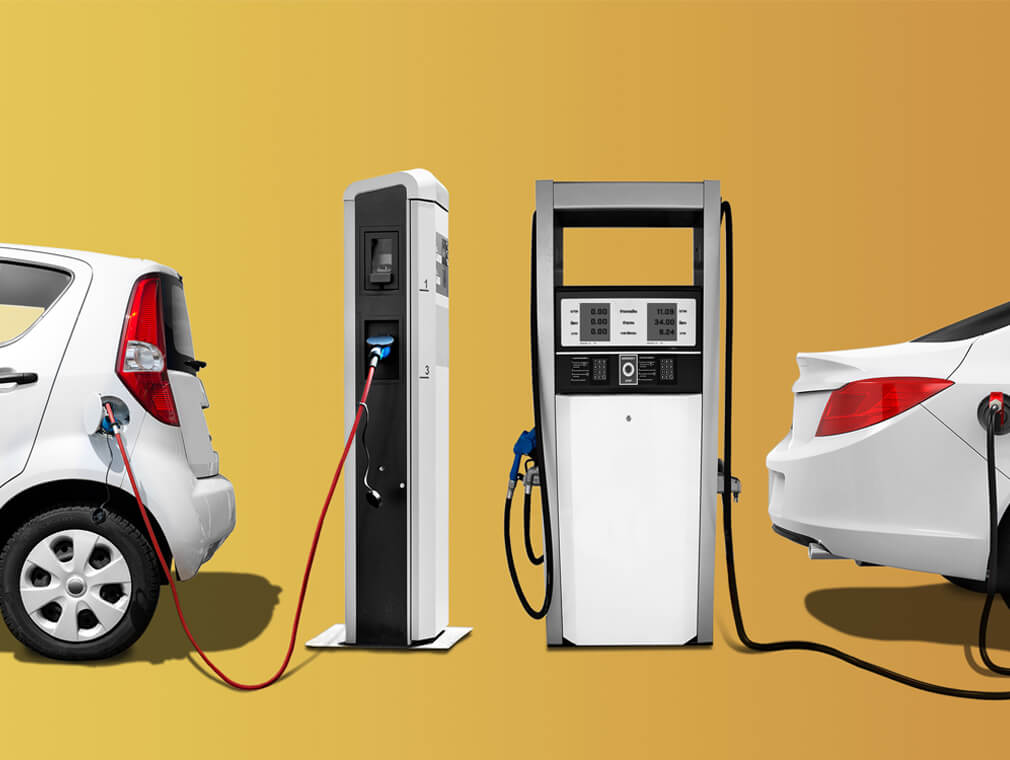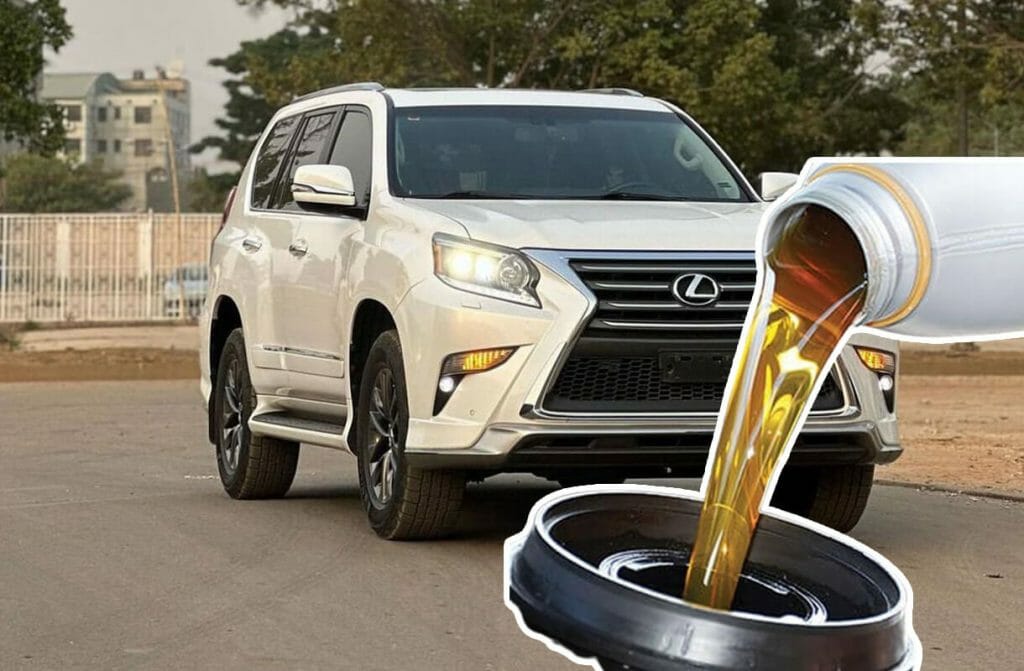There are numerous factors to consider when determining which car will be the best fit for your needs. You must consider everything, including sizes, types, models, brands, features, and conditions. Looking at electric automobiles and how they compare to gasoline and even diesel vehicles is one thing that is becoming more and more evident in this list.
Table of Contents
We’ll all have to make this decision at some point or another, and the situation is shifting far more quickly than most people realise.
Have 1 million naira and above to Buy or Sell Cars In Nigeria?Check carlots.ng RIght Now RIght Now
Electric vehicles
Electric vehicles undoubtedly have advantages. They offer a long list of features that can improve your life and, in many cases, save you money, but when we put them up against gasoline-powered automobiles in particular, they have a few advantages that make them stand out from the competition.
- New Technologies
Electric cars offer some of the most cutting-edge technology available, which is one of the benefits of electric vehicles over gasoline vehicles that is rising the fastest. They keep getting better and better, which only serves to increase their appeal. In recent years, we have seen highly long-lasting batteries, self-charging technology, and, in certain cases, hybrid usage as well. It’s fantastic to participate in
- Lower operating costs
Electric vehicles also have the major advantage of having extremely low operating costs. That mainly boils down to using electricity as a fuel. Electricity is far more cost-effective for running a car than fossil fuels when the tariff is right. It’s also important to note that because fewer moving parts are involved in how they function, you’ll probably experience fewer maintenance-related problems as well.
Petrol Cars
It’s not the end of the world just because electric automobiles are more economical than gasoline-powered vehicles. Similar to comparing gasoline vs. diesel, gasoline always offers advantages that are difficult to match due to how prevalent they are in our daily lives.
- Lower purchase prices
The price that results from the widespread ownership of gasoline-powered vehicles is the major effect. There are numerous vehicles available that can fit any budget. This means that you can always find a car that is effective for your budget and meets all of your needs for perhaps much less than a high-quality electric vehicle.
- Accessible maintenance and fueling
In addition to being simple to locate and inexpensive to purchase, gasoline-powered automobiles are also easier to find than the services required to keep them operating. Electric vehicles are more difficult to find, even if they have fewer problems than gasoline-powered vehicles. However, you can work almost anywhere and get fuel for a gasoline-powered car. It can make a huge difference, especially if you fall in love somewhere obscure.
- Loved and recognized
Finally, we must still consider our emotions in the debate between electric and gasoline-powered cars. Despite the rising acceptance of electric vehicles by society, they are still not as common as gasoline-powered cars. For many automobile aficionados or even the regular Joe, changing routines that we know and love is difficult.
How to Choose a Car: Electric or Petrol
When deciding between an electric vehicle and a gas-powered car, it’s important to take both your values and the decision’s financial implications into account. Choosing a vehicle is a very personal decision.
The long-term savings may outweigh the initial outlay for an electric car if you can afford it and want to keep the car for a long time. Having less of an environmental impact can also make you feel more at ease.
However, you can think about delaying until you can afford it or increasing charging alternatives if the greater monthly payment on a car loan will be damaging to your budget or if you’re worried about usability with charging times, accessibility, and distances. With a hybrid car, you may even make a compromise and get the best of both worlds.
It’s crucial that you take your time to thoroughly investigate all of your alternatives and decide what’s best for you.
Should I buy an Electric car or a Petrol car?
Whether you should buy an electric car or a petrol car depends on your individual needs and preferences. Here are some factors you may want to consider:
- Environmental impact: Electric cars are generally considered to be more environmentally friendly than petrol cars, as they produce zero emissions at the tailpipe. However, the overall environmental impact of an electric car depends on how the electricity used to charge the car is generated.
- Cost: Electric cars are generally more expensive to purchase than petrol cars, but they can be cheaper to run in the long term due to lower fuel costs and maintenance costs. However, this may not always be the case, depending on your driving habits and the cost of electricity in your area.
- Range and charging infrastructure: Electric cars typically have a limited range compared to petrol cars, and you may need to plan your routes and charging stops more carefully. However, the availability of charging infrastructure is improving rapidly, and you may find that you have sufficient options for charging your electric car in your area.
- Driving experience: Electric cars often provide a smooth and quiet driving experience, with instant torque and acceleration. However, some drivers may prefer the sound and feel of a petrol engine.
- Resale value: Electric cars are still relatively new to the market, and it’s unclear how they will hold their value over time. Petrol cars are more established and may be easier to sell on the secondhand market.
Overall, the decision to buy an electric car or a petrol car depends on your personal circumstances and priorities. It’s worth doing some research and test-driving both types of vehicles to help you make an informed decision.
Electric car vs petrol car
| Parameter | Electric car | Petrol car |
| Fuel | Electrical energy | Petrol |
| Power | Electric motor | Internal combustion engine |
| Cost | Expensive (High price) | Affordable than EVs |
| Cost of fuel | Low | High |
| Cost of Maintenance | Low | High |
| Fuel efficiency | Higher in the city and lower on highways | Higher on highways and lower on city roads |
| Carbon emissions | Zero | High |
Electric car vs petrol car: cost comparison
The cost comparison between electric cars and petrol cars in Nigeria depends on a variety of factors, such as the make and model of the cars, the cost of fuel and electricity, and the driving habits of the owner.
In general, electric cars tend to have higher upfront costs than petrol cars, due to the cost of the battery and other components. However, electric cars are generally cheaper to run than petrol cars, as electricity is typically cheaper than petrol in Nigeria. The exact cost savings will depend on how much the owner drives, and the cost of electricity in their area.
In addition to fuel costs, maintenance and repair costs are also to be considered. Electric cars typically have lower maintenance costs than petrol cars, as they have fewer moving parts and don’t require oil changes or other regular maintenance tasks. However, the cost of repairing an electric car can be higher if something goes wrong with the battery or other specialized components.
It’s worth noting that there are relatively few electric cars on the market in Nigeria at the moment, and they may be more expensive to purchase due to limited availability. However, as the market for electric cars grows and more models become available, it’s possible that prices will come down.
Below are the factors that impact the overall cost of an electric/petrol car.
- Price: When it comes to price (ex-showroom/on-road), EVs are expensive. If you plan to own an electric vehicle, be ready to invest a significant amount of money. On the other hand, petrol cars are affordable when compared to their battery-powered counterparts.
- Registration charges: In Nigeria, there are no registration charges for electric vehicles at the moment of this article. So, this saves a significant amount of money while purchasing an EV. On the other hand, you have to pay the registration charges while buying a petrol vehicle. The registration fee varies depending on the price of the car.
- Car insurance: Insuring an electric vehicle will cost you dearly. An EV is equipped with expensive components such as a battery pack, electric motor, etc. So, the cost of insurance is on the higher side. The car insurance premium for a petrol car is comparatively lower than for an EV.
- Incentives: You can avail of government-provided incentives/subsidies when purchasing an eco-friendly car. The incentives help to bring down the price of an EV slightly. Moreover, you can enjoy tax benefits if you buy an EV on a car loan. On the contrary, petrol vehicles do not receive any such benefits.
- Fuel consumption: Electric cars are a step ahead of petrol cars when it comes to fuel efficiency. Given that electricity costs less than petrol, the running cost of an EV is low.
- The fuel economy of a petrol car depends on the engine capacity and several other factors. However, with the rising fuel costs, the overall running cost of a petrol car is on the higher side.
- Maintenance cost: An electric vehicle has fewer mechanical/moving parts. Hence, the cost of maintenance is low. In contrast, a petrol vehicle is equipped with complex mechanical parts such as an engine, gearbox, brakes, etc. Servicing/repairing these components is necessary and bumps up the maintenance cost.
- Resale value: There is a lack of supply of second-hand EVs in the used cars market. Hence, your used electric car may return a higher resale value than a petrol-engine-powered car. However, the value of your second-hand EV depends on the make/model, condition and geographical location.
Pros and cons of electric cars
Below are the advantages and disadvantages of an electric car.
Advantages of electric cars
- Electric cars are easy to drive due to simple controls.
- They are silent in operation due to the absence of mechanical parts.
- EVs deliver quick acceleration due to the high torque available from the get-go.
- Low maintenance and service intervals are not as frequent as petrol vehicles.
- Low running cost.
- Electric cars produce zero emissions and help to reduce carbon footprints.
- You can charge electric cars at your home provided you install a home charging system.
- Electric vehicles are eligible for government-provided subsidies and tax benefits if you buy an EV on loan.
Disadvantages of electric cars
- The driving range of electric vehicles is low, and you cannot cover long distances without charging the car.
- The lack of public charging stations can be an issue when driving your EV for long distances.
- Installing a home charging module is an added expense.
- Lack of expert mechanics to service/repair eco-friendly cars.
- Replacing the battery pack of an EV can burn a hole in your pocket.
Pros and cons of petrol cars
Here are the advantages and disadvantages of petrol engine-powered cars.
Advantages of petrol cars
- You can select from a wide range of petrol vehicles available in the market.
- Conventional petrol cars are available at an affordable price.
- Petrol vehicles offer an engaging driving experience with better acceleration, handling and top speed.
- Petrol engines last longer than electric motors found in EVs.
- A vast network of service centres and easy availability of expert mechanics make it easier to own a petrol car.
- Petrol fuel stations are available everywhere. So, refuelling is not an issue.
- Conventional cars can run long distances on a full tank of fuel.
Disadvantages of petrol cars
- Running costs of petrol engine-powered cars are high because petrol is more expensive than electrical energy.
- Maintenance costs are also on the higher side due to complex mechanical components.
- Produces harmful carbon emissions that pollute the environment.
Have 1 million naira and above to Buy or Sell Cars In Nigeria? Check carlots.ng
All rights reserved. Reproduction, publication, broadcasting, rewriting, or redistribution of this material and other digital content on carmart.ng is strictly prohibited without prior express written permission from Carmart Nigeria - Contact: [email protected]









